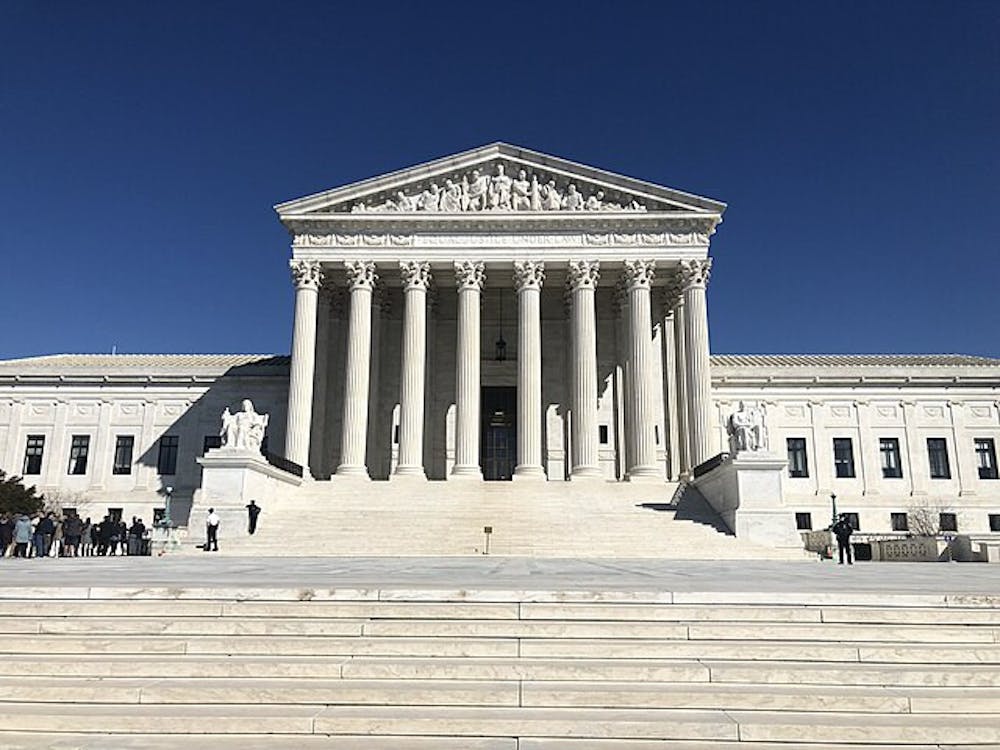In the case of Trump v. United States, the Supreme Court ruled July 1 that the Constitution grants a former president absolute immunity from criminal prosecution for designated “official presidential acts.”
The 6-3 ruling sent shockwaves around the nation, with legal scholars and Democratic politicians alike condemning the decision as undermining the democratic process. In her searing dissenting opinion, Justice Sonia Sotomayor asserted in a now-infamous line that such sweeping immunity makes the president a “king above the law.”
“With fear for our democracy, I dissent,” Sotomayor wrote.
At the same time, many prominent Republicans lauded the move as a victory for “the rule of law” and a welcome end to what they termed the Biden administration’s “weaponization of the Justice Department.” Although former President Donald Trump has frequently alleged that President Joe Biden orchestrated the slew of civil and criminal cases against him, a number of third-party investigations have found no evidence to support these claims.
But the question of what qualifies as an “official presidential act” now resides with U.S. District Judge Tanya Chutkan, who is overseeing Trump’s federal election interference case. Chutkan on Saturday rejected an attempt by Trump’s defense team to have the case dismissed and set a hearing date for Aug. 16, when she will determine how the immunity ruling might factor into the case.
The immunity ruling has also postponed Trump’s sentencing for the New York criminal hush money trial, where he was found guilty on all 34 felony counts in May. The hearing had originally been scheduled for July 11 but is now set to take place Sept. 18, though the Supreme Court on Monday rejected an attempt to delay the sentencing further.
As the ruling’s fallout plays out in lower courts, The Chronicle spoke to professors at Duke Law and in the Sanford School of Public Policy to hear insights on its implications for the presidency and the country’s future.
Neil Siegel, David W. Ichel distinguished professor of law and professor of political science, directed The Chronicle to his July 5 editorial published in Bloomberg Law where he argued that the ruling will come to be seen as “a mistake of historic proportions” by offering protection for the president, not the people.
“A significant threat to the stability and continued viability of American democracy comes from the president, who — unlike Congress or the courts — possesses substantial powers to act unilaterally both domestically and internationally,” Siegel wrote.
Asher Hildebrand, professor of the practice in the Sanford School, agreed, arguing that the decision “cuts against the grain of the Constitution.”
He contended that the notion of presidential immunity undermines the “intent of the constitutional framers to limit the powers of the presidency and to ensure that … no man, but especially the president, would be above the law.”
According to Pope McCorkle, professor of the practice in the Sanford School, the controversy around the ruling is tied to the court’s lack of urgency in delivering a decision and its ultimate ambiguity.
“The court took way longer than [it] probably … needed to come up with an opinion and really helped former President Trump run out the clock before the 2024 election,” McCorkle said, adding that Trump was able to declare the ruling as “a great victory.”
Hildebrand claims that rising disapproval of the Supreme Court has less to do with the court being political — something he says has always been the case to an extent — but more with the views of the court being “so out of line with … the mainstream political views of Americans.”
A September 2021 Gallup poll revealed that public approval of the Supreme Court fell to 40% — its lowest point since 2000 — after the controversial Dobbs v. Jackson Women’s Health Organization decision that repealed Roe v. Wade and the constitutional right to an abortion.
According to a July update to Gallup’s polling, the court’s approval rating after the July immunity decision remained similarly low at 43%.
When it comes to how the ruling might play a role in the upcoming election, McCorkle says that Trump’s outstanding criminal cases will not be adjudicated before November, making the question of whether he should be considered “immune” from those charges irrelevant to the race.
He added that the decision will likely spark a surge in rhetoric from the Democratic Party calling for Supreme Court reform.
“I think that you’re going to hear a lot from the Democrats and from President Biden about how the court can perhaps be more reshaped and be more responsive than it seems to be right now to the needs of democracy,” McCorkle said.
Hildebrand says that if Trump is reelected, the decision will offer him the “green light” to “take any number of actions that might have previously skirted the line of legality or criminality” under the protection of immunity for official acts.
Regardless of the outcome in November, Siegel thinks the decision exposes a Supreme Court that is out of touch with the needs of most Americans.
“The court has made plain that it is up to the voters — those in the real world — to protect the Constitution, American democracy, rule of law and the existence and relevance of truth,” Siegel concluded in his Bloomberg article.
Get The Chronicle straight to your inbox
Signup for our weekly newsletter. Cancel at any time.

Michelle Voicu is a Trinity sophomore and an associate news editor for the news department.

